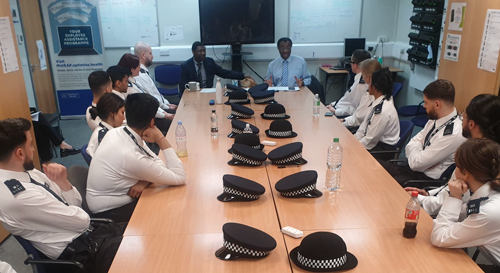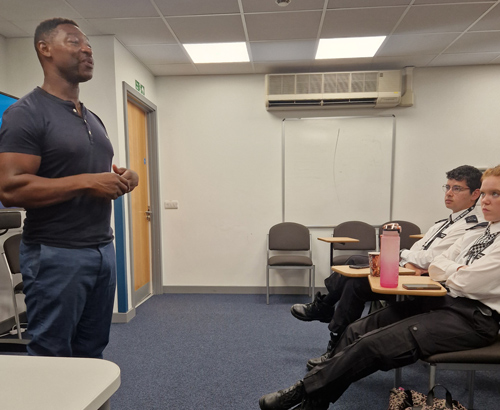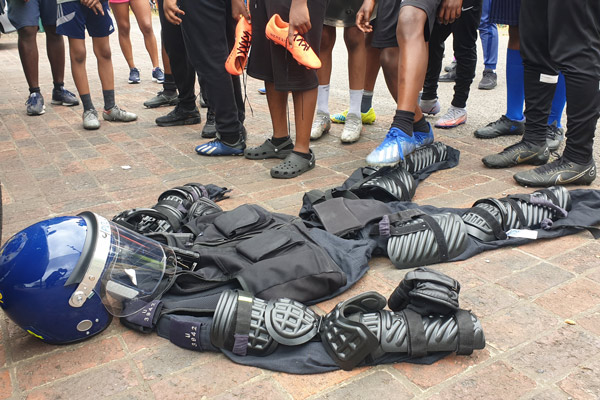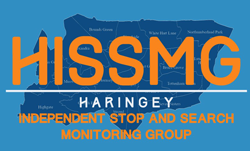Community Training of New Police Recruits
As the Haringey Independent Stop and Search Monitoring Group, we believe that effective stop and search police training in Haringey can foster much-needed trust between officers and local residents. By delivering community-led awareness training, we help new police recruits understand the powerful impact stop and search can have, particularly within Black and minority communities. Our work ensures officers are equipped with crucial information about local sensitivities before they begin their duties.


New Recruit Training: Supporting Fair Policing and Accountability
Around every six months, we actively participate in stop and search police training for the North Area's incoming officers. This practical community engagement allows us to give direct feedback, and provide real-life accounts of how stop and search practices affect people in Haringey. Our training emphasises the trauma and resentment that insensitive practices can cause, especially for those who have experienced stops or searches when innocent. New police recruits often come from outside Haringey and may lack an understanding of its history and diverse population. We provide a ‘potted history' of notable events to help recruits understand why many in the Black community distrust the police. Our sessions encourage accountability and best practice policing, challenging recruits to reflect on their conduct and make informed choices that respect everyone's rights.
Examples of Notable Events Leading to Mistrust of Police in Haringey
Several high-profile incidents have shaped the landscape of policing and community relations in Haringey. Sharing these stories as part of stop and search police training provides officers with much-needed context.
Cherry Groce (1985): Cherry, a Black woman, was shot by police during a forced entry at her home. The aftermath saw violent riots on Broadwater Farm in Tottenham, with PC Keith Blakelock killed amid the unrest. An inquest later found Mrs Groce's death preventable, highlighting failures within the police. The emotional scars of this event persist in Haringey's Black community.
Joy Gardner (1993): Joy lost her life following a police raid at her Crouch End home over an immigration matter. Handcuffed, she resisted, and officers used adhesive tape to restrain her, causing her to suffocate and suffer brain damage. Joy died in hospital, and though officers were charged, they were acquitted. This tragic event deepened fears and mistrust of police, especially among Haringey's minority residents.
Mark Duggan (2011): Mark, a 29 year old mixed-race man, was shot dead by police while travelling in a taxi in Tottenham on 4th August 2011. His death sparked widespread protests, including missiles being thrown at officers and police cars set on fire. Independent reports later found that the disproportionate stopping and searching of Black people in Haringey contributed significantly both to the hostility towards the Police and widespread unrest that followed the shooting.
Jermaine Baker (2015): Jermaine, a 28 year old Black man, was shot dead by police while sitting in car outside Wood Green Crown Court on 11th December 2015, in a suspected plot to free two prisoners. Officers mistakenly believed Jermaine was armed with a gun. Later, it was revealed the police held covertly obtained intelligence to suggest there was no gun in the car, but this crucial information was not passed on to the firearms officers at the scene. The police killing of another Black man in Haringey - perceived by many to be unnecessary - led to further mistrust and fear of the police by many in the Black community.
Jordan Walker-Brown (2020): Jordan, a Black man, was tasered by police while fleeing to avoid a police stop and search. He was seriously injured and paralysed after falling from a wall. The incident led to criminal charges against the officer. The IOPC found sufficient evidence for the case to go to trial, though the officer was found not guilty. Because of this and other similar cases, many in the community feel that Black people are unjustly treated by police and the courts.
By highlighting these events, the Haringey Independent Stop and Search Monitoring Group helps new police officers learn valuable lessons about community history, accountability, and the urgent need for fairer policing.
Why We Do What We Do
The longstanding mistrust of police in Haringey stems from such events and the lived experiences of local residents. Our aim at Haringey Independent Stop and Search Monitoring Group is to bridge the gap between communities and police through genuine community engagement. By delivering stop and search police training in Haringey, supporting information sharing, and promoting accountability, we seek to improve conduct and fairness, and help rebuild public confidence in policing. We're committed to shaping a safer, more inclusive borough where everyone's rights are respected.
We also equip people with stop and search information and guidance on IOPC complaint support if needed.

Frequently Asked Questions
What is stop and search police training in Haringey?
Stop and search police training involves educating new recruits about the impact of stop and search practices, focusing on fairness, community engagement, and racial sensitivity.
How does the Haringey Independent Stop and Search Monitoring Group support police training?
We provide community-led training sessions, share local statistics, personal stories, and feedback about police conduct to improve accountability and fair policing.
Why is racial sensitivity awareness important in Haringey police training?
Given Haringey's history and diverse communities, racial sensitivity helps build trust, prevents injustice, and improves police-community relations.
What notable events are covered in the police training?
Training includes incidents such as the deaths of Cherry Groce, Joy Gardner, Mark Duggan, Jermaine Baker, and Jordan Walker-Brown, illustrating mistrust trends.
How does this training help with police accountability in Haringey?
Our training increases officer awareness, encourages responsible conduct, and promotes community-informed practices, supporting public trust and IOPC complaint support.
How can I get more information about stop and search or support in Haringey?
Contact the Haringey Independent Stop and Search Monitoring Group at enquiries@hissmg.co.uk or phone 07763 681 371 for information and support.
